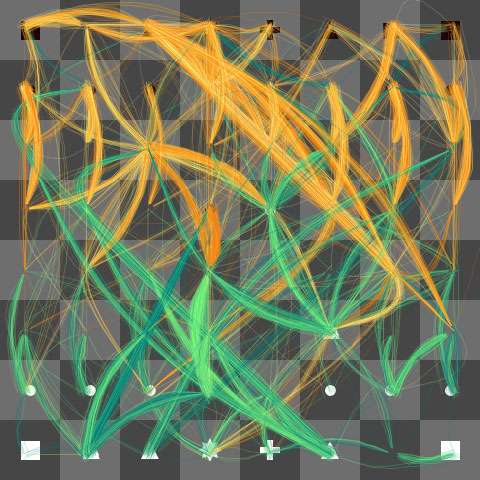As a topic that has been discussed at random but in length.
The role/program of the library: how has it evolved over the years, decades, centuries...? What social role has the library had on the public? How has digital media and technology influenced the advancement or decline of the current social and fundamental roles of the library? Can digital media, technology, and documentation change the program of the "current" library?
Exploring libraries in general: primarily we see a trend and cultural need for the library as a social keystone in local communities but, concurrently we see advancement and the expansion for the use of computers as a "tool" for library users and visitors. Expanding
existing areas within libraries and contracting others to make room for the computer and digital age and to
accommodate new technologies (
Fx: 20-40yrs ago, libraries made room for a new technology that made its peak in the 70's as a new documentation source, the microfilm). Changing the library program in this sense did not hurt the traditional library role but, in fact, helped to expand the library. Documenting books, articles, and papers on the 'new media' opened physical areas that were normally used for housing books to community areas and shared reading spaces.
Presently computers and digital scanners make it easy to
archive, transport, search and find literature and images across the world (
Fx: the
Internet/world wide web)...how can this technology effect one of the foundational program elements of a library, which is housing and storing books for loan. Would the role of the library change if all the media and literature of the library was housed in the computer?...therefore, making knowledge accessible to
everyone across the world...potentially saving thousands upon thousands of natural resources and money that would normally be associated with the making of paper bound books.
If you think about your visits to the library on a more daily-functional activity: breakdown your uses for the library...[is it a place] to pick up books for loan, for social gathering/meeting place, studying , computer access,
Internet, escape, printing, resources, community...?
[think about] how digital documentation can open up spaces
normally used for 'the stacks'. how digital media can
efficiently allow you to do more research in less time (movement through large libraries can be time consuming, not to mention the complex cataloging/numbering system).how digital media and documentation can enhance
learning environments with interactive studying and
learning programs and spaces within the library.
[other questions] price or value of paper bound books in the future: what will be the role of the home library?: collectors of books and their future investment decisions: the relationship between publishers and writers: piracy of books:
[evolution] currently humans have trouble reading on computer screens for long periods of time (commonly known as eye fatigue)...if children are brought up on reading from computer screens at an early age, primary socialization, instead of books, will their eyes adjust over time?: development of portable digital books (a contemporary
ibook if you will this will only help the transition from analog books to digital literature)










